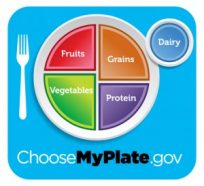Fats encourage overeating
Scientists find that fats push an “eat more” button in rats

Fatty foods taste good but can take a toll on your health. A new study in rats found that high-fat diets create the urge to overeat.
happy_lark/istock/Getty Images
Fatty foods can be hard to resist and hard on your health. A high-fat diet can increase weight and the risk of heart disease, the leading cause of death in America. But many people still find it difficult to limit fats. A new study suggests why these foods are so attractive.
In a recent experiment, scientists fed fats to rats to learn more about the molecules involved in overeating. The researchers wanted to know what messages fats might send to the brain and other parts of the body. By studying the cells that help pass on these messages, researchers might be able to develop new drugs that can help people lose weight.
In the new study, when rats tasted fats, their bodies activated molecules called endocannabinoids. In both humans and rats, these molecules help tell the brain when it’s time to eat. Previous studies have shown that when endocannabinoids are active, an animal will eat … and eat, and eat and eat. When endocannabinoids are blocked, or inactive, the eating stops.
“It was a very striking effect,” Daniele Piomelli told Science News. Piomelli, who led the new study, is a pharmacologist at the University of California, Irvine and the Italian Institute of Technology in Genoa, Italy. A pharmacologist studies how different drugs work.
The research by Piomelli and his team suggests that eating fats, which activate endocannabinoids, can make an animal want to keep eating. The word “endocannabinoids” sounds a lot like the word “cannabis,” which is another name for marijuana. That’s no coincidence: Endocannabinoids are similar to THC, the molecule in marijuana that delivers the illegal drug’s high. The consumption of cannabis, or marijuana, also activates endocannabinoids. People who smoke marijuana often get the munchies, a strong desire to binge eat.
For the new study, the researchers divided rats into four groups and fed each group a different diet. Three of the diets were rich in a particular nutrient. One group gobbled corn oil, a kind of fat. Another group ate a sugar-rich diet. A third group devoured a protein-heavy diet (protein found in meats, nuts and dairy products helps rebuild damaged cells in the body). The fourth group received a well-balanced diet.

The scientists studied the tissues of the different groups of rats. The team observed that endocannabinoids were most active in the intestines of rats fed a high-fat diet. Endocannabinoids are linked to binge eating, so the researchers concluded that the fat-eating rats were prone to overeating. The same effect might happen in humans, because cells and molecules work together in a similar way in rats and people.
The new study points to a way to help overweight or obese people lose weight. Angelo Izzo, a pharmacologist at the University of Naples Federico II in Italy who did not work on the new study, told Science News that a new drug that blocks endocannabinoids could cut down on overeating.
Piomelli and his team want to design just those types of drugs. They hope to create medications that act only in the gut, since that’s where endocannabinoids were most active in the study. If successful, perhaps the scientists can make fatty foods a bit easier to resist — and a healthy weight easier to maintain.
POWER WORDS
protein A fundamental component of all living cells, including many substances — such as enzymes, hormones and antibodies — that are necessary for an organism to properly function. Foods that are high in protein include meats, eggs, nuts and soy.
pharmacology the branch of medicine concerned with the uses, effects and modes of action of drugs.
molecule A group of atoms bonded together. A molecule is the smallest piece of a chemical compound that can take part in a chemical reaction.
biology The study of living things.







